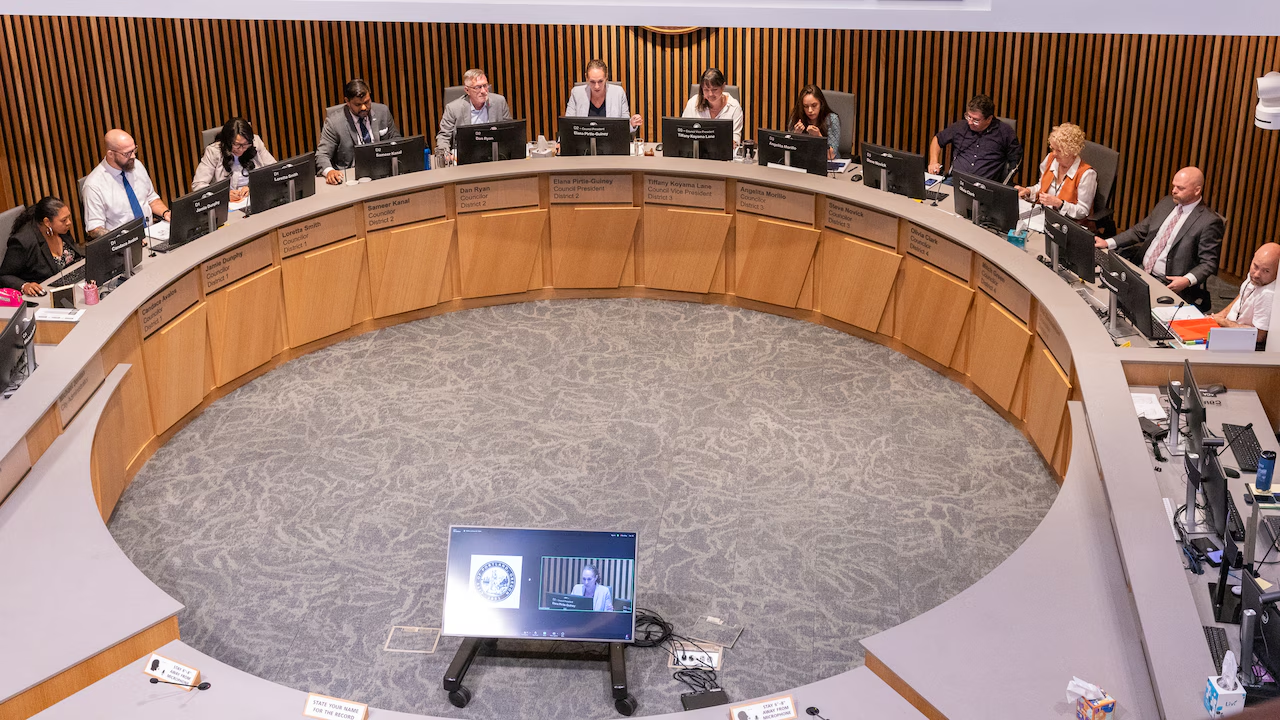PORTLAND, Ore. — Portland’s newly seated City Council entered its first summer with a full slate of public meetings, eager to prove it could lead the city through its most pressing challenges. Yet instead of diving into homelessness, housing shortages, infrastructure decay, or economic recovery, much of the conversation turned inward: councilors were preoccupied with figuring out how to govern together.
A New Council, an Unsteady Start
The current City Council is unlike any Portland has had before. With the city transitioning to a new form of government, leaders are adapting to rules, procedures, and power-sharing arrangements that remain unfamiliar to many. The result has been a rocky start, as councilors debate not only policy but also the very structure of how decisions should be made.
City insiders and longtime observers describe this early stage as a “learning curve.” Instead of decisive policy action, residents have witnessed extended discussions on process, authority, and how to navigate the city’s shifting political framework.
Also Read
The Weight of Expectations
For Portlanders, the council’s internal struggles stand in contrast to the urgency of daily realities. The housing crisis continues to displace vulnerable families, homelessness remains visible across neighborhoods, and the city’s infrastructure — from pothole-ridden streets to aging water systems — demands immediate attention.
Economic recovery also looms large, with many downtown businesses still struggling to regain pre-pandemic vitality. Portlanders expected fresh leadership to bring momentum and solutions, but so far, progress has been slow.
Focus on Procedure Over Policy
During recent summer meetings, councilors spent hours grappling with questions of governance — how committees should be structured, which responsibilities fall under which offices, and how to balance individual authority with collective accountability.
While such debates are necessary in the early days of a new government structure, critics argue the extended focus on procedure risks delaying action on the issues that matter most to residents.
“Every week that goes by without meaningful decisions on housing or safety feels like another week the city falls behind,” said one community advocate.
Public Frustration Grows
Public testimony at the meetings reflected growing frustration. Several residents questioned why councilors appeared more concerned with debating internal rules than implementing policies to address visible problems.
“I don’t care who chairs what committee,” one Portland resident told the council. “I care about whether my family feels safe walking down the street and whether we can afford to stay in our home.”
Finding the Path Forward
City leaders acknowledge the criticism but maintain that establishing clear procedures now will ultimately make the council more effective in the long run. Without consensus on governance, they argue, future decision-making could become chaotic and unproductive.
Still, the tension between immediate needs and structural fine-tuning is palpable. Portlanders want solutions to homelessness, safety, and economic stagnation today—not promises of smoother operations tomorrow.
As the council continues its early months, its challenge is clear: prove it can govern while also governing.
If it fails to strike that balance, Portland’s long list of crises may continue to outpace its leaders’ ability to respond.












